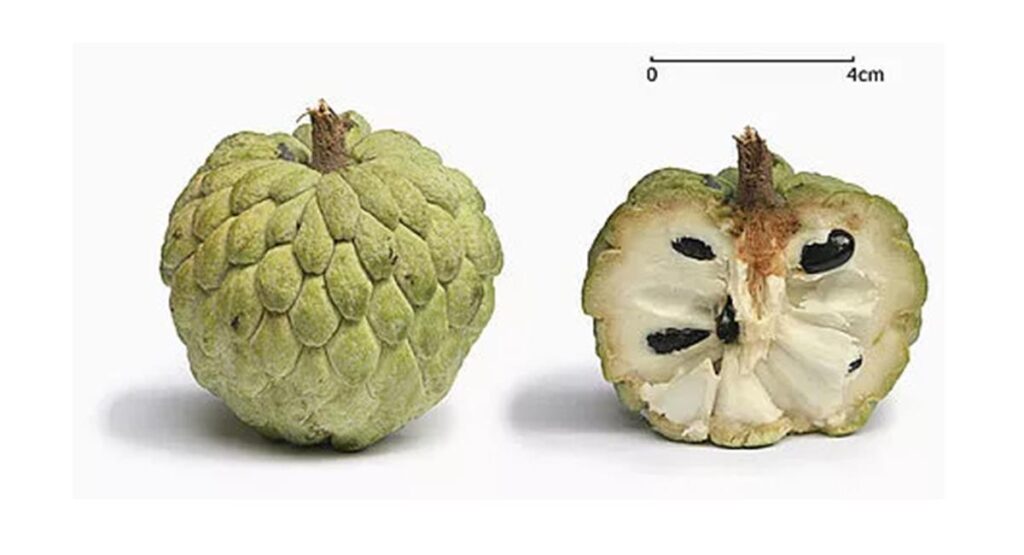Apple seeds, while often discarded without much thought, have been used in traditional medicine and natural remedies for centuries in various cultures, including those in Asia. However, despite their purported health benefits, consuming apple seeds—particularly Asian apple seeds—regularly can come with certain risks. This article delves into the potential dangers of frequent consumption of apple seeds, highlighting the reasons why caution should be exercised when incorporating them into your diet.
The Presence of Amygdalin and Cyanide Risk
The most significant risk associated with consuming apple seeds—whether they are from Asian or Western apples—stems from the presence of amygdalin, a cyanogenic glycoside compound. When apple seeds are crushed or chewed, amygdalin can be metabolized by the body into hydrogen cyanide, a highly toxic substance that interferes with cellular respiration and can cause poisoning.
Cyanide poisoning can lead to symptoms such as nausea, headache, dizziness, confusion, and in severe cases, it can be fatal. While a person would need to consume a significant quantity of apple seeds to experience poisoning, repeated or large-scale ingestion can still pose a serious health risk over time. The levels of amygdalin vary between apple varieties, but Asian apple seeds, like those of other apple types, may also contain significant amounts of this compound.
Toxicity from Accumulation
The risk of toxicity increases with accumulation. Consuming small amounts of apple seeds sporadically may not cause immediate harm, as the body can detoxify small quantities of cyanide. However, regular consumption of apple seeds—especially in larger quantities—can lead to the gradual buildup of cyanide in the body. This toxicity may not manifest right away, but chronic exposure can result in poisoning over time, potentially affecting the nervous system and other vital organs.
Since apple seeds are often consumed in unprocessed or minimally processed forms in traditional medicine (such as ground or crushed), individuals might unknowingly consume larger quantities of amygdalin than they would by eating whole apples. This accumulation of cyanide could cause long-term health complications.
Digestive Issues and Irritation
Consuming apple seeds regularly can also cause digestive issues. Apple seeds contain compounds that can irritate the digestive tract, leading to stomach discomfort, bloating, or even nausea in sensitive individuals. Additionally, since apple seeds are tough and fibrous, they may be difficult to digest fully, potentially leading to gastrointestinal discomfort or a feeling of heaviness in the stomach.
Some people may experience constipation or other digestive disturbances from the rough texture of the seeds. While apple seeds are often considered to have some health benefits, such as promoting digestive health through their fiber content, these same fibrous components can be problematic if consumed in excess, especially when the seeds are not properly prepared or chewed.
Potential Allergic Reactions
While rare, some individuals may have allergic reactions to apple seeds. Apple seeds contain proteins and other compounds that could trigger allergies in sensitive people, resulting in symptoms such as swelling, itching, or difficulty breathing. For those with a history of fruit or nut allergies, it is advisable to proceed with caution when consuming apple seeds.
If an individual is allergic to apples themselves, they may be more likely to experience a similar allergic response to apple seeds. Symptoms can range from mild to severe, and allergic reactions can sometimes cause life-threatening anaphylaxis. If you suspect an allergy to apple seeds, it is best to avoid consuming them and consult with a healthcare professional.
Interference with Nutrient Absorption
Another potential risk of consuming apple seeds regularly is the possibility that they could interfere with nutrient absorption. Apple seeds contain compounds that can bind with certain minerals in the digestive tract, making them less bioavailable to the body. This means that essential nutrients—such as iron, calcium, and magnesium—may not be absorbed as efficiently if apple seeds are consumed in large amounts.
This issue is more likely to arise when apple seeds are consumed in combination with other foods, particularly if they are ground up or consumed in the form of supplements or extracts. In the case of long-term, excessive consumption, this could potentially lead to nutrient deficiencies, particularly for individuals who rely heavily on plant-based sources of minerals.
Risk of Overdose on Extracts or Supplements
In some Asian cultures, apple seeds are used in herbal extracts or supplements, often in concentrated forms to treat various health conditions. These concentrated preparations may contain higher levels of amygdalin and other compounds that could pose a greater risk of poisoning than the seeds themselves when consumed in their natural form.
The use of apple seed extracts or supplements should be approached with caution, as they are not typically regulated for safety and potency. Overuse or self-prescribing without proper medical guidance could lead to serious health complications. For example, the use of apple seed oil or other extracts may seem beneficial for skin health or detoxification but could cause unintentional cyanide toxicity if consumed in excess.
Children and Pets Are Particularly Vulnerable
Apple seeds can pose a special risk to children and pets, who may be more vulnerable to the toxic effects of cyanide. While children may not typically eat large quantities of apple seeds, they may be more likely to ingest crushed or broken seeds in certain situations, such as when they play with apples or other fruits.
Similarly, pets, especially dogs, may be tempted to chew on apple cores, which contain seeds. While larger animals might be able to tolerate small amounts of seeds, smaller pets, such as cats or dogs, may be at greater risk of cyanide poisoning if they consume the seeds regularly. Symptoms of cyanide poisoning in pets can include lethargy, difficulty breathing, and, in severe cases, death.

Conclusion: Moderation is Key
While the potential health benefits of apple seeds—such as their antioxidant properties and possible contributions to detoxification—are intriguing, it is important to consume them in moderation. The primary risk associated with regular consumption of apple seeds is their content of amygdalin, which can release cyanide in the body and lead to poisoning if consumed in excess.
To minimize risks, it is best to consume apple seeds in small amounts, avoid grinding or crushing them, and ensure they are part of a balanced and varied diet. If you are considering using apple seeds for their medicinal properties, it is essential to do so under the guidance of a healthcare provider or herbalist who can offer advice on safe consumption practices.
Ultimately, while apple seeds may offer some health benefits, their potential risks should not be underestimated. By understanding these risks and exercising caution, you can make informed decisions about whether apple seeds are right for you.



